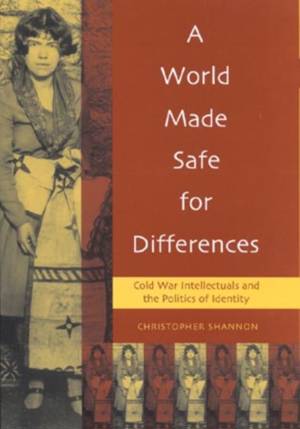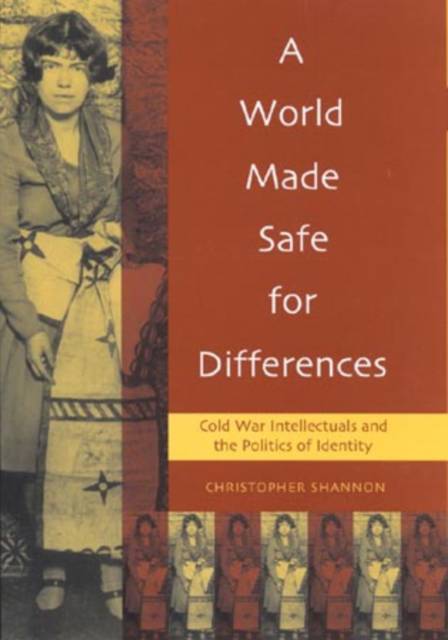
- Afhalen na 1 uur in een winkel met voorraad
- Gratis thuislevering in België vanaf € 30
- Ruim aanbod met 7 miljoen producten
- Afhalen na 1 uur in een winkel met voorraad
- Gratis thuislevering in België vanaf € 30
- Ruim aanbod met 7 miljoen producten
A World Made Safe for Differences
Cold War Intellectuals and the Politics of Identity
Christopher ShannonOmschrijving
In A World Made Safe for Differences, Christopher Shannon examines how an anthropological definition of culture shaped the central political and social narratives of the Cold War era. In the middle decades of the twentieth century, American intellectuals understood culture as a "whole way of life" and a "pattern of values" in order to account for and accommodate differences between America and other countries, and within America itself. Shannon locates the ideological origins of current debates about multiculturalism in the pluralist thought of "consensus" liberalism. The emphasis on individualism in contemporary identity politics, Shannon suggests, must be understood as a legacy of the Cold War liberalism of the 1950s rather than the counter-culture radicalism of the 1960s. A World Made Safe for Differences is a highly original and controversial book that will be of great interest to students and scholars of twentieth century American history.
Specificaties
Betrokkenen
- Auteur(s):
- Uitgeverij:
Inhoud
- Aantal bladzijden:
- 184
- Taal:
- Engels
- Reeks:
Eigenschappen
- Productcode (EAN):
- 9780847690589
- Verschijningsdatum:
- 13/12/2005
- Uitvoering:
- Paperback
- Formaat:
- Trade paperback (VS)
- Afmetingen:
- 153 mm x 218 mm
- Gewicht:
- 258 g

Alleen bij Standaard Boekhandel
Beoordelingen
We publiceren alleen reviews die voldoen aan de voorwaarden voor reviews. Bekijk onze voorwaarden voor reviews.











